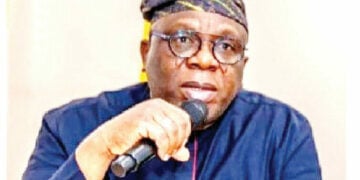Areas for improvement: Consolidating Reforms for Inclusive and Sustainable Growth
Two years into the Tinubu administration, Nigeria’s macroeconomic indicators reflect signs of recovery and policy coherence — yet the lived reality for millions of citizens remains harsh. The government has rightly embarked on ambitious fiscal, structural, and institutional reforms, but these need stronger coordination, deeper social cushioning, and more transparent communication to achieve inclusive outcomes.
This commentary identifies critical areas requiring improvement — from governance efficiency and policy sequencing to inflation control, social protection, industrial diversification, and institutional trust. These are not criticisms for the sake of opposition but constructive reflections to strengthen an administration that has already demonstrated political courage and reformist intent.
Strengthening Policy Coordination and Implementation Capacity
While the government has launched major reforms in subsidy removal, FX unification, and tax expansion, the gap remains between policy formulation and implementation.
• Policy coherence remains fragmented across ministries. For example, while the fiscal authorities pursue deregulation and market liberalisation, monetary policy has sometimes responded with over-tightening, creating credit constraints for SMEs.
• Recommendation: Establish a Presidential Policy Delivery and Performance Unit (PPDPU) — with clear Key Performance Indicators (KPIs) for each ministry, linked to measurable socio-economic outcomes, as seen in the Kenyan Performance Contracting Model (2005–2012).
Addressing Inflation and Cost-of-Living Pressures
Although headline inflation has declined to 20.12% (as of August 2025) — its lowest level in three years — food and transportation inflation remain disproportionately high, eroding household welfare.
• The inflationary impact of fuel subsidy removal and FX reforms has not been adequately counterbalanced by wage and productivity growth.
Recommendation:
• Expand agricultural mechanisation and rural infrastructure to boost local food production.
• Accelerate mass transit programmes with locally assembled buses powered by CNG or electricity to reduce transport costs.
• Introduce targeted consumption subsidies for low-income households using verified National Identity Numbers (NIN) or BVNs.
Deepening Social Protection and Human Capital Investments
The government’s Student Loan Scheme and minimum wage increase are commendable, but broader social safety nets remain weak. Millions of informal workers, farmers, and artisans are still outside the formal protection system.
Recommendation:
o Scale up conditional cash transfers through digital platforms (as piloted in the Nigeria Social Investment Programme).
o Develop a National Skills Guarantee Scheme — linking youth training directly to industry needs, drawing lessons from Singapore’s SkillsFuture model.
o Prioritise health insurance and access to primary care, especially in rural and peri-urban communities, through the Basic Health Care Provision Fund (BHCPF).
Improving Communication and Public Trust
Policy success is not only about performance but also perception. The administration’s reforms, though bold, have suffered from a lack of an effective communication strategy. The government’s narrative often lags behind public sentiment, allowing misinformation to thrive.
• Many Nigerians do not understand the long-term benefits of painful reforms due to a lack of clear explanations and engagement.
Recommendation:
o Establish a National Reform Communication Task Force to harmonise messaging across ministries and media.
o Encourage regular presidential and ministerial media briefings to sustain transparency.
o Institutionalise citizen feedback loops through digital dashboards showing real-time progress on infrastructure, jobs, and inflation metrics.
Accelerating Industrialisation and Domestic Value Addition
Nigeria’s export recovery is impressive, yet it remains heavily reliant on commodities. Manufactured exports have grown by 173% since 2024; however, this increase is from a low base and has not yet been industrially transformative.
• The absence of functional industrial clusters, power stability, and logistics infrastructure continues to undermine competitiveness.
Recommendation:
o Fast-track Special Economic Zones (SEZs) focused on agro-processing, renewable energy, and pharmaceuticals.
o Provide targeted tax incentives and a stable power supply to manufacturers through embedded generation models.
o Strengthen local content policy enforcement in the oil, gas, and mining sectors to create sustainable jobs.
Governance Efficiency and Bureaucratic Reform
The cost of governance remains unsustainably high. Many agencies have overlapping mandates, resulting in duplication and inefficiency.
Recommendation:
o Implement the Oronsaye Report (2012) in phases to streamline ministries and agencies, thereby enhancing efficiency and effectiveness.
o Introduce e-governance systems for procurement, licensing, and payments to reduce leakages.
o Deploy AI-enabled tools for service delivery tracking and anti-corruption monitoring.
Subnational Governance and Fiscal Federalism While federal revenue has improved, many states remain fiscally dependent and administratively weak. Actual national development requires strong subnational governance.
Recommendation:
o Introduce performance-based grants for states meeting transparency and service delivery targets.
o Encourage state-level public-private partnerships (PPPs) in infrastructure, education, and healthcare.
o Review the revenue allocation formula to reward productivity, not population alone.
Security and National Cohesion
Although relative stability has returned to some regions, insecurity persists in others — from farmer-herder conflicts to banditry and pipeline vandalism.
• Economic progress cannot thrive without peace and justice.
Recommendation:
• Strengthen community policing, intelligence sharing, and border security.
• Establish Regional Security Development Councils, integrating state governors, traditional institutions, and security agencies.
• Address root causes — unemployment, exclusion, and climate induced displacement.
Environmental Sustainability and Climate Policy
Climate change continues to exacerbate poverty, flooding, and food insecurity. Nigeria’s current policies remain fragmented and underfunded.
Recommendation:
• Operationalise the Nigeria Climate Change Act (2021) through a dedicated green financing fund.
• Incentivise renewable energy startups and integrate climate adaptation into agricultural extension services.
• Collaborate with global climate funds (Green Climate Fund, AfDB’s SEFA) for concessional financing.
Conclusion: From Stabilisation to Transformation
The Tinubu-led government deserves commendation for its courage in confronting decades old fiscal and structural distortions. Yet courage alone is not enough — execution discipline, social inclusion, and public trust must accompany reform.
Nigeria’s next phase must move beyond economic stabilisation toward social transformation — where every reform translates into tangible benefits for its citizens. If the government strengthens coordination, deepens inclusion, and institutionalises transparency, the bold foundation already laid can mature into a lasting legacy of national renewal.
Prof. Lere Baale, FPSN, FPCPharm, FNAPharm, FNIM, FNIMN CEO, Business School Netherlands International, Nigeria





